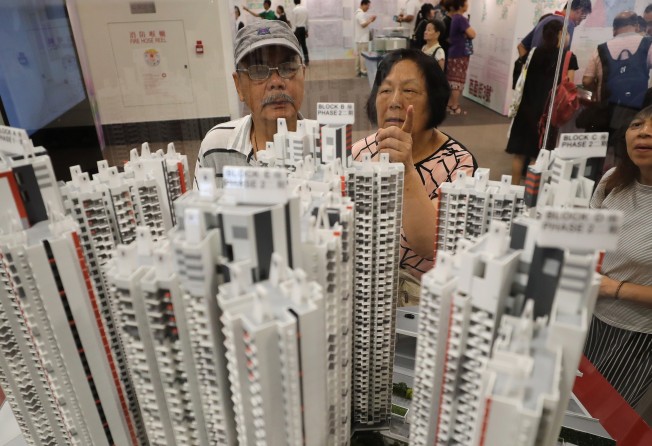Hong Kong government must be ready to act on property market
- With predictions of a decline in prices, officials must be alert to any surge in the flow of hot money and the need to adjust policies from time to time

It is impossible to quantify the effect of measures to cool Hong Kong’s property market. With demand having been fuelled by a sustained cheap credit cycle, we can only wonder what heights it might have scaled without them, and how hard the eventual landing would be. Now investor sentiment has softened. Uncertainty about future growth and the course of interest rates has taken its toll, amid United States-China trade tensions.
As a result, the residential market has slowed since snapping a 28-month run of price gains in August, with the median price dropping 3.7 per cent since then. That is not a downward cycle yet, although as we reported yesterday investors have been selling to lock in gains in case there is one. But expect a clamour for removal of the cooling measures anyway if the market does not pick up.
Chief Executive Carrie Lam Cheng Yuet-ngor has rightly sought to manage such expectations, even as a new report showed investors do expect a slowdown during the coming year. “Don’t count on the government rescuing the market,” she said in a speech to an economic conference. “The [slowdown] has not even offset the increase at the beginning of this year.” That said, if the property market does enter a downward cycle the government would consider some easing measures, according to Hong Kong Monetary Authority chief Norman Chan Tak-lam.
The new report, from Collier International, shows local investors expect the commercial market to slow next year in the face of geopolitical uncertainties and rising interest rates. These concerns could impact more severely in the residential market, with agencies Centaline and Midland tipping prices to decline by up to 15 per cent.
On top of restrictions on sales to non-permanent residents and companies such as an extra 15 per cent duty aimed at cash-rich investors from the north, Lam’s government has rolled out new measures to increase supply and make flats more affordable to locals, such as taxing vacant new private flats and delinking subsidised housing prices from the market rate. At the same time, down payments have been raised to discourage overcommitment in an inflated market. But officials must be alert to any surge in the flow of hot money and the need to adjust policies from time to time.